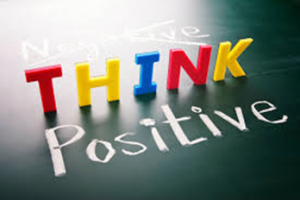Anger is an emotion, what you do with it matters.
It’s like anything else. You can use it to build or to destroy.
You just have to make the choice

Anger is a completely normal and healthy human emotion. However, when it gets out of control it can become destructive. Uncontrolled anger can lead to serious problems at work and in personal relationships, and may undermine the individual’s overall quality of life. As a normal human emotion, it is not just a mental state of mind. It triggers an increase in heart rate, blood pressure and levels of adrenaline. Anger has survival benefits, and forms part of our fight or flight brain response to a perceived threat or harm.
The effects of uncontrolled anger on the person
The effects of uncontrolled anger on others
- Arguments

- Fights
- Physical & Verbal abuse
- Assaults
- Broken relationships
Different people will get angry as a result of different things, some life events can also trigger anger such as:
- Traumatic events
- High levels of stress
- Unmet expectations/ Disappointments
- Injustice

- Embarrassment
- Poor performance in school, work or in relationships
- Grief
- Financial problems
We are a product of our experiences from childhood to adolescence and to adulthood. Consequently, if you are struggling with out-of-control anger, you may be wondering why your fuse is so short. Anger problems often stem from what you have learned as a child. If you watched others in your family scream, hit each other, or throw things, you might think this is how anger is supposed to be expressed.
As individuals, we deal with situations based on what we have learnt as appropriate i.e. “Our Know how” therefore, learning more appropriate ways to deal with anger will promote positive behaviours.
These constructive methods will help you in dealing with anger appropriately:
- Being aware of what makes you angry:
 knowing what triggers your anger is very rewarding, some of these triggers are not physically observable events such as: a person’s belief system, Overgeneralizing; For example,“You always interrupt me. You NEVER consider my needs. EVERYONE disrespects me. I NEVER get the credit I deserve”, Unresolved conflicts in the past. Others include observable events such as when someone physically or verbally abuses you, Disappointments, Problems with Finance, relationships, work or school. If you can be aware of your anger trigger(s) you can say “anytime my needs are not met, I get angry” or “every time I have financial problems, I easily get angry”
knowing what triggers your anger is very rewarding, some of these triggers are not physically observable events such as: a person’s belief system, Overgeneralizing; For example,“You always interrupt me. You NEVER consider my needs. EVERYONE disrespects me. I NEVER get the credit I deserve”, Unresolved conflicts in the past. Others include observable events such as when someone physically or verbally abuses you, Disappointments, Problems with Finance, relationships, work or school. If you can be aware of your anger trigger(s) you can say “anytime my needs are not met, I get angry” or “every time I have financial problems, I easily get angry”
2. Practicing Mindfulness: now that being aware of your anger trigger is established, the next is to know what these triggers do within you, increase in heart rate, increased anxiety, loss of focus, negative thoughts and more occurs within you during that angry state, but you can be conscious of these inner experience only when you are mindful of what is going on within you. 
Mindfulness is the intentional accepting and non-judgmental focus of one’s attention on the emotions, thoughts and sensations occurring in the present moment. With this, you consciously deal with the triggers which you have become aware of. For more information on mindfulness; visit https://www.mobilehealthconsult.org.
3. Use of Cognitive restructuring: this means changing the way you think. An angry person may have overly-dramatic thinking which affects his relationship with others.
 You can replace negative thoughts about certain things to positive ones thereby dealing with anger in positive ways.
You can replace negative thoughts about certain things to positive ones thereby dealing with anger in positive ways.
Remember, you can’t eliminate anger completely, things will happen that can cause you to get angry and sometimes it will be justifiable anger. Life will be filled with frustration, pain, loss, and the unpredictable actions of others. You can’t change that, but you can change the way you let such events affect you. Dealing constructively with anger can keep you from self-destructive behaviours and promote healthy relationships in the long run.